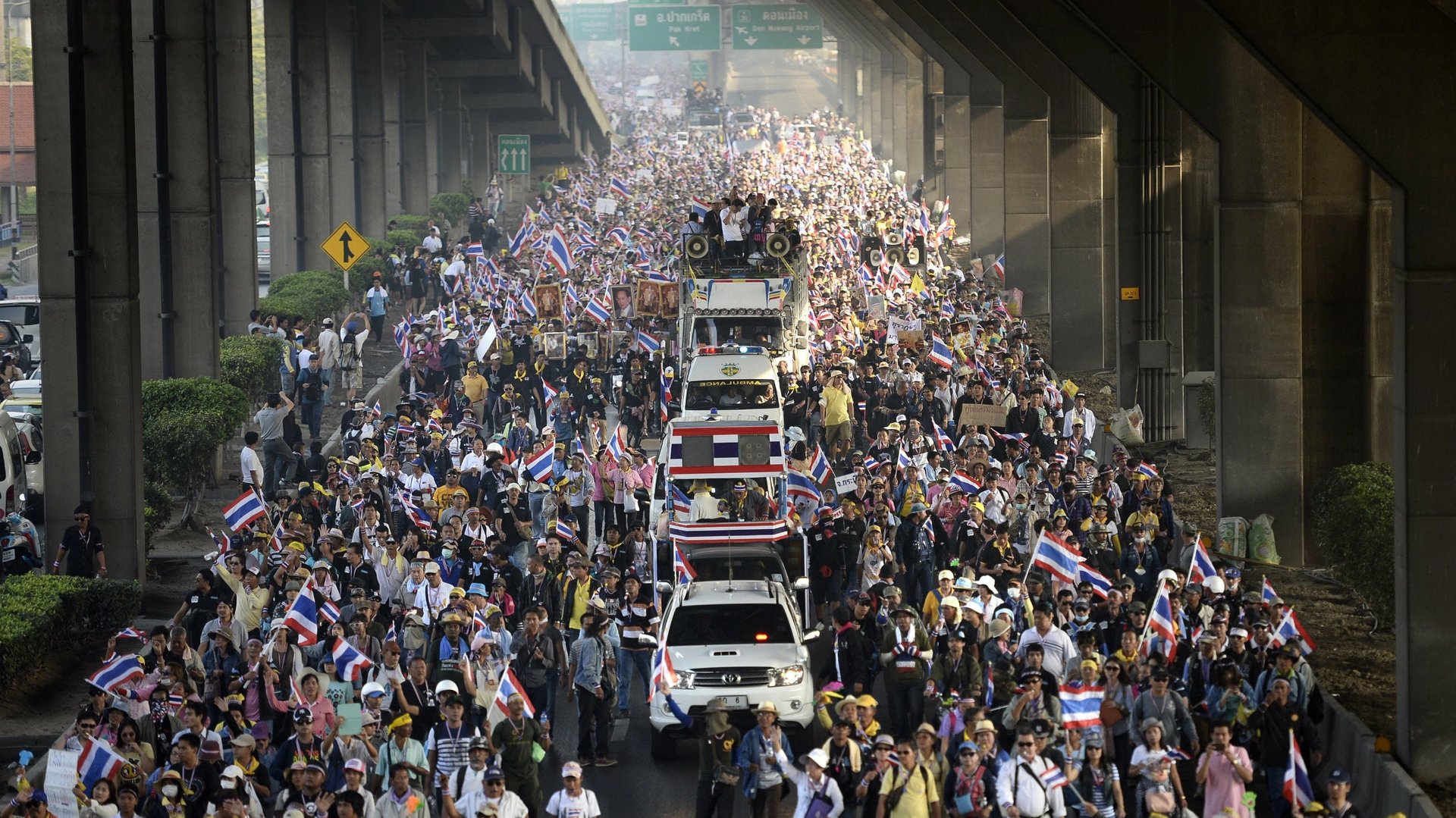Thailand’s Democrat Party is not so keen on the whole democracy thing
Thai prime minister Yingluck Shinawatra has dissolved parliament, called for new elections, proposed a national referendum, and even offered to resign to appease anti-government protesters. You might think that would be welcome news to the opposition Democrat Party and the 100,000 demonstrators who returned to the streets on Monday to try yet again to unseat her—but you would be wrong. After losing a string of elections to Yingluck and her brother, former prime minister Thaksin Shinawatra, the Democrat Party has had more than enough of democracy, and is seeking to reshape Thailand’s politics by other means.


Thai prime minister Yingluck Shinawatra has dissolved parliament, called for new elections, proposed a national referendum, and even offered to resign to appease anti-government protesters. You might think that would be welcome news to the opposition Democrat Party and the 100,000 demonstrators who returned to the streets on Monday to try yet again to unseat her—but you would be wrong. After losing a string of elections to Yingluck and her brother, former prime minister Thaksin Shinawatra, the Democrat Party has had more than enough of democracy, and is seeking to reshape Thailand’s politics by other means.
On Sunday the Democrats, who are mainly supported by middle class and wealthy residents from Bangkok and the country’s south, announced their members are quitting parliament en masse because, according to Democrat leader Abhisit Vejjajiva, Yingluck’s government is “illegitimate.” What he didn’t mention was the fact that the Democrats simply can’t beat the democratically elected Yingluck and her party at the polls.
“You have to throw away this definition of what democracy is supposed to be,” Bangkok Post columnist Voranai Vanijaka told the Daily Beast. “This is not about democracy and rule of law, blah, blah, blah. This is a fight. This is a fight for who’s going to run this country. … They’ll worry about democracy when the fight is over.”
Yingluck’s party rose to prominence thanks to rural voters in the country’s populous north and northeast, whose economic gains and political empowerment have radically redrawn the Thai electoral map. The Democrats, meanwhile, haven’t won a nationwide contest in more than twenty years. “We cannot beat them,” Theptai Seanapong, a Democrat member of parliament, told the New York Times. ”It doesn’t matter if we raise our hands and feet in parliamentary votes, we will never win.” How the party actually can win is far from clear. Protest leader Suthep Thaugsuban has called for an unelected council of “good people” to run the country, but details are scarce. (On the topic of participating in new elections, Abhisit said “We are walking today; we will talk about that later.”)
Indeed, it might be time to adjust the copy on the Democrat Party’s web site. The party claims it “will always continue to firmly adhere to the principles of democracy, freedom, transparency, and public participation.” Except, perhaps, those pesky parts about democratic elections and majority rule.